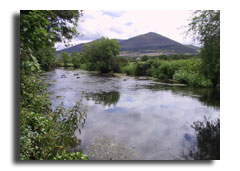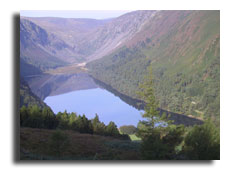AQUENS works with Industry, Local Authorities, agencies and communities primarily to survey and manage aquatic resources, but also to audit and assess impact on terrestrial flora and fauna.
AQUENS provides a complete service of surveillance and operational monitoring programs to assess ecological status of surface waters in accordance with provisions of the EU Water Framework Directive. We monitor surface waters to assess the magnitude and impact of all relevant significant pressures and, where necessary, assess temporal changes in water quality status arising from such impacts.
 AQUENS will devise operational programs to obtain, analyse and interpret biological quality data and the background hydromorphological, chemical and physico-chemical features that sustain the varied components of the biota that comprise and define ecological status.
AQUENS will devise operational programs to obtain, analyse and interpret biological quality data and the background hydromorphological, chemical and physico-chemical features that sustain the varied components of the biota that comprise and define ecological status.
The wide range of expertise available within AQUENS, allied to the availability of comprehensive academic backup within the University regime of UCD, can address the many areas which impact on the aquatic, riparian or terresterial environments.
AQUENS addresses issues related to environmental problems in river basin and catchment management
Many activities of modern domestic, industrial, agricultural and recreational life have a negative influence on the environment. Use of Ireland’s surface waters for abstraction as a source of drinking water or for disposal of our wastes has frequently resulted in habitat or water quality deterioration. Abstraction of water for domestic consumption or industrial use reduces water flow and may impoverish ecological health. Contamination arises from point or diffuse source discharge of a variety of pollutants including organic materials, trace metals, pesticides, hazardous wastes and landfill leachates into the aquatic environment.
 Increased erosion from land disturbance results in siltation. Eutrophication of rivers and lakes arises from excessive nutrients and acidification may be caused by sulphurous depositions from the combustion of fossil fuels or intensive afforestation.
Increased erosion from land disturbance results in siltation. Eutrophication of rivers and lakes arises from excessive nutrients and acidification may be caused by sulphurous depositions from the combustion of fossil fuels or intensive afforestation.
Undesirable deterioration of water quality often has associated human health risks and more often leads to impoverishment of fisheries and habitat with a general loss of amenity value but also increasingly leads to infringement of legal standards – including the stringent provisions of the EU Water Framework Directive.
|
AQUENS assists:
|
|
|